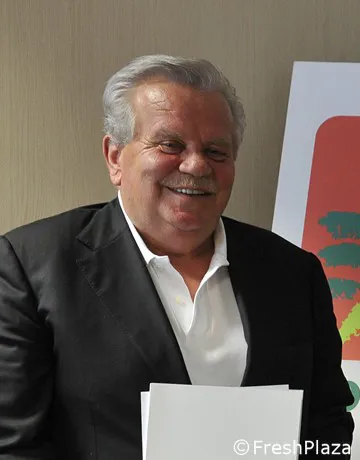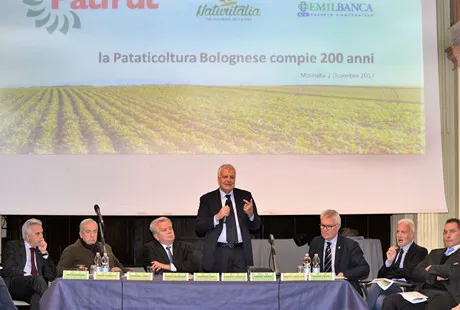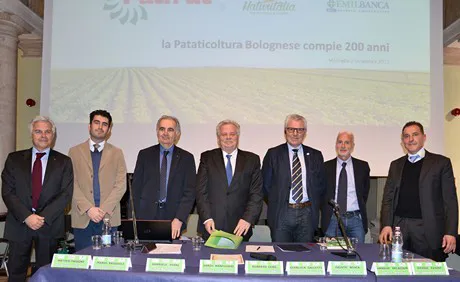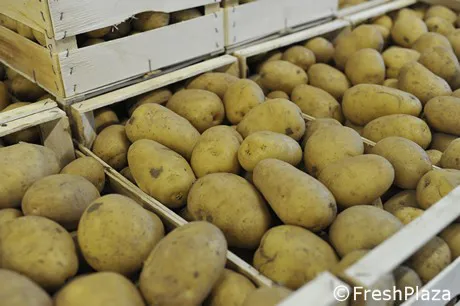 Italy produces only half the potatoes it consumes, yet prices are not always in line with producer expectations. Management could be better, but there's hope for the future, even in the short term.
Italy produces only half the potatoes it consumes, yet prices are not always in line with producer expectations. Management could be better, but there's hope for the future, even in the short term.Naturitalia director Gabriele Ferri confirmed this situation during the "La pataticoltura bolognese compie 200 anni. La competitività e la sostenibilità della filiera. Modelli organizzativi e strategie a sostegno del reddito degli agricoltori" convention organised by the cooperative in collaboration with Naturitalia and with the contribution from Emil Banca.

A moment during the convention. Minister Gianluca Galletti standing
"Consumers consider mainly freshness and high-quality, followed by origin, flavour, certification, food security, label information and inspections along the chain."

Left to right: Emil Banca vice-director Matteo Passini, Molinella Mayor Dario Mantovani, Gabriele Ferri from Naturitalia, Roberto Cera from Patfrut, Arnaud Delacour, (UNPT), Fausto Bosca (UNAPA) and Davide Pasini from Patfrut.
"Also due to this change, it is essential to reach a good level of aggregation and product concentration, in order to guarantee suitable economic response to producers."
Arnaud Delacour, President of the National Union of French Potato Producers (UNPT), provided an overview of the French domestic situation. Crops cover over 125,000 hectares producing over 6 million tons (2017 estimates). "Our union gathers all French producers, active in four markets: new potatoes, potatoes for fresh consumption, industry potatoes and starch. Investment programmes focus mainly on quality, product storage techniques with a low environmental impact, integrated production and precision agriculture."
The Director of the National Union of Italian Potato Producers (UNAPA) Fausto Bosca stressed how producers continue to believe and invest in potatoes despite them being considered second-class products on a Community level.

"The Common Agricultural Policy set up tools to safeguard producer income, which can be adopted when demand and supply are unbalanced for all products except potatoes. The single Member States tried to fill this gap with resources that led to significant interbranch agreements. However, this option too was abandoned in 2011 as the EU decreed that Union countries could not destine resources to this purpose. Because of this, when the market does not absorb produce and prices drop, the sector has no way of safeguarding producer income."
Given this situation, it's normal to wonder whether there is a future for potato production in Italy. Bosca feels there is reason to be optimistic.
First of all, consumers tend to privilege origin more and more. Secondly, due to the fact potatoes are cultivated from north to south, Italy can supply fresh produce 10 months a year. Finally, domestic potatoes guarantee a high level of food security thanks to the strict regulations applied compared to other European countries.
